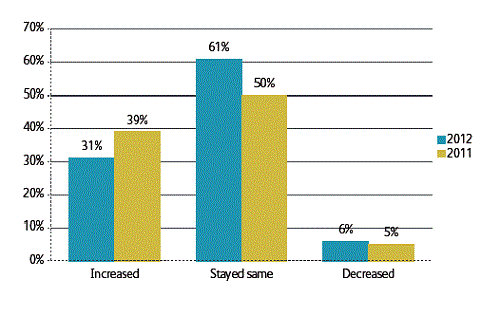
(Click on the image to englarge)
Businesses are still cautious about outsourcing their IT security, a survey of over 250 IT professionals in the UK and Europe reveals. Almost two-thirds of IT professionals said they do not want to outsource security, according to the research by Computer Weekly and TechTarget. However take-up of outsourced security services is likely to increase as services become more established and varied, with 15% saying they have not found a good fit with their business yet from the services currently available.
 You can find out more about businesses' IT security priorities in 2013 by download this free 75 page report, exclusively for Computer Weekly members.
You can find out more about businesses' IT security priorities in 2013 by download this free 75 page report, exclusively for Computer Weekly members.
















 Source: The Open Group
Source: The Open Group



 Most IT professionals surveyed by Computer Weekly believe that outsourcing is contributing to a shortage of skilled IT professionals in the UK.
Most IT professionals surveyed by Computer Weekly believe that outsourcing is contributing to a shortage of skilled IT professionals in the UK.  Source: Google
Source: Google



Recent Comments